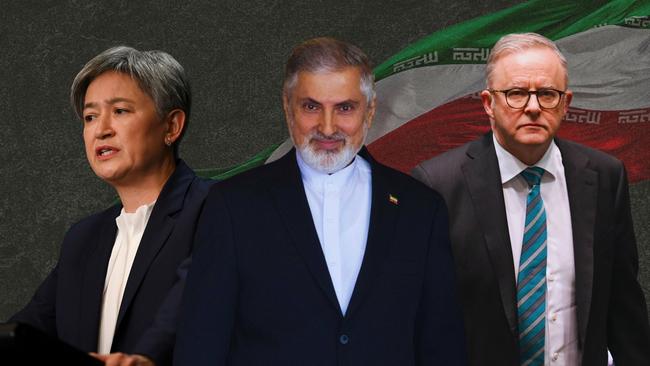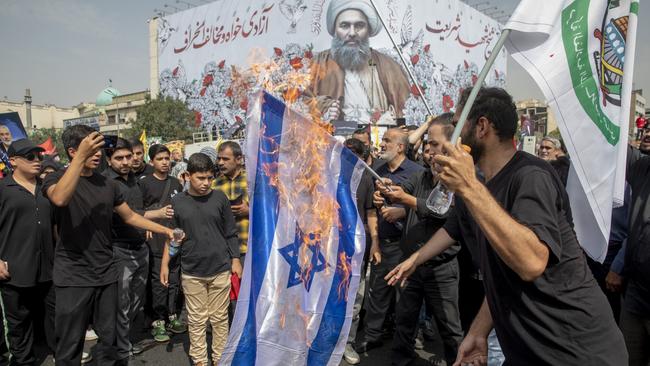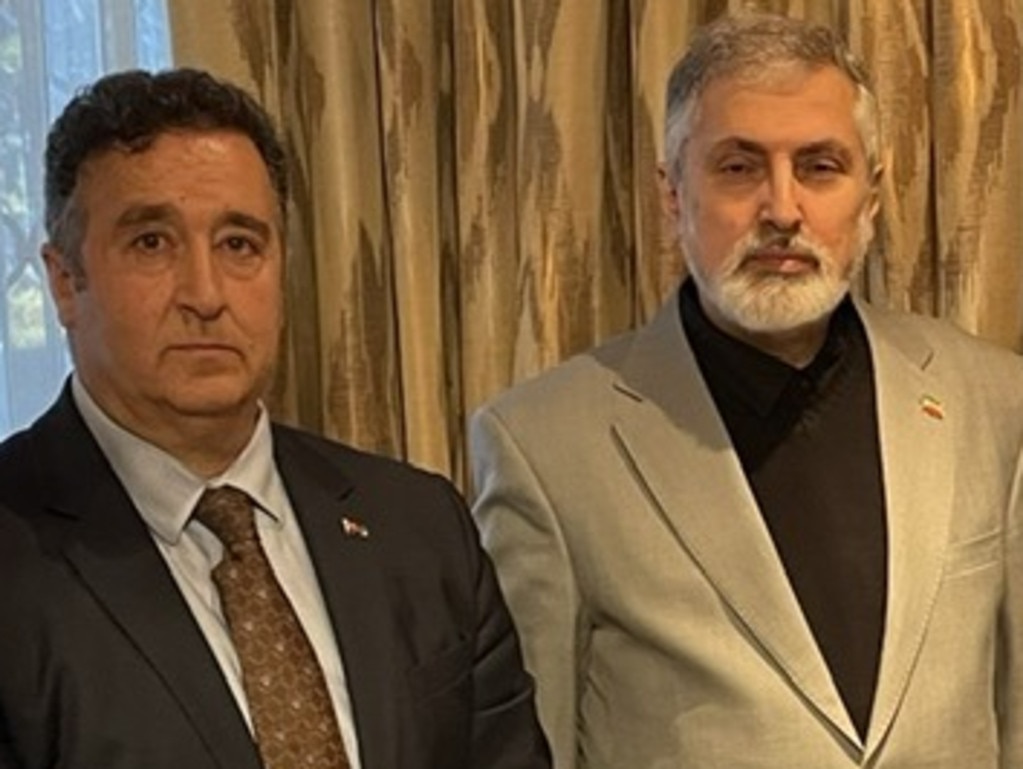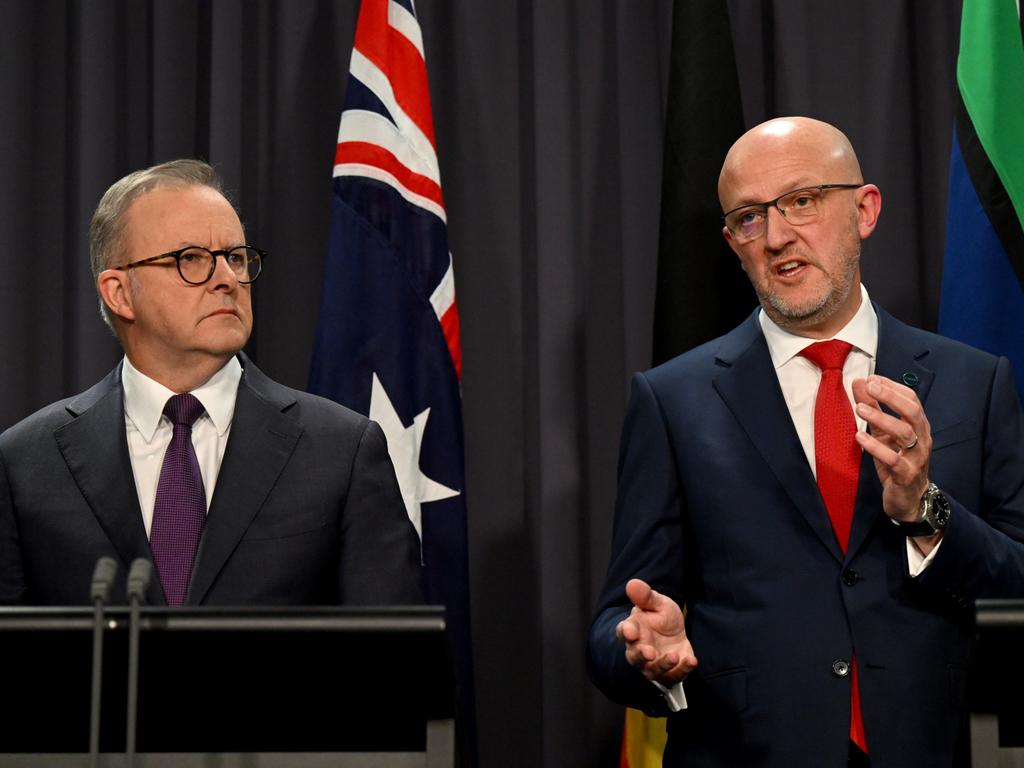
The moral outrage is justifiable. And at first glance the Albanese government’s response has been justifiably questionable.
The Australian understands departmental bureaucrat first assistant secretary Marc Innes-Brown, a former ambassador to Iran, was dispatched on Monday afternoon to deal with ambassador Ahmad Sadeghi after he called Israel a “Zionist plague” and described Hamas’ commitment to the “wiping out” of Israel by 2027 as a “heavenly and divine promise”.
While it was a face-to-face meeting, considering Innes-Brown’s status as an assistant secretary to the Middle East division, one could assume this was a downgrading of the severity of the incident by the Australia. And on that basis, reasonable people would feel rightly aggrieved, irrespective of the excuse Foreign Minister Penny Wong was in the US. She does have a mobile phone.
Australia might argue a higher-ranking official would elevate the Iranian mission to a higher level than it deserves. But this doesn’t wash in today’s political context. This raises the question as to what should be the threshold for a diplomat to be expelled or at least called in for a serious dressing down considering Australian governments have been weak-kneed in the past: for example with Russia.
The most justifiable reaction to the diplomat’s declaration of Israeli annihilation would be to invoke the most extreme sanction. He’s violated his privileged position in Australia, offended domestic law, and given explicit expression to the most objectionable post-Holocaust anti-Semitic refrain. Not that this is new. Iran has long held these views. And repulsion would presumably have been Anthony Albanese’s first thought, had it not been for other considerations.
In the context of Labor’s current equivocation over the Israel-Palestinian conflict, it would be easy to assume there has been a domestic reflex from Labor to not inflame Muslim hostility. And this may well be true to some extent. The reality is more complex.
Australia has a more profound security role in the Middle East than most would realise and it is one that often requires Australia to suck a lemon when it comes to Iran. Australia’s diplomatic relationship with Iran is unique among the Five Eyes intelligence alliance of the US, UK, Australia, Canada and New Zealand.
With the US having severed ties long ago, (the UK only restored diplomatic links recently despite ongoing mistrust), Australia has become the conduit for communications between the rogue regime and the non-European west. The US relies on Australia for this back-channel relationship. Forewarning of the more recent Iranian drone attack against Israel was communicated through Australian channels.
This places Australia in a unique role, but one which also puts us in a compromised security position. It also explains why Australia gets away with saying no to the US on other requests.
If Australia were to expel the Iranian ambassador now, at the very time Iran was threatening further strikes against Israel, a valuable communication channel to the US may be lost. Hence, Albanese’s remarks: “What we’re going to do is act responsibly in Australia’s national interest.”

It’s not only in our interests but those of our security partners that this relationship is maintained. There is a longer history to this. One example is Greg Moriarty, Australian ambassador to Iran from 2005 to 2008, when the US didn’t have an embassy in Tehran, who was called to Washington to brief president George W. Bush on Australia’s perspective on Iran.
It is not unreasonable to assume the US may have applied pressure on Australia not to expel Sadeghi – at a time of heightened conflict where Australia’s diplomatic relations could be invaluable. These are considerations Albanese and Wong may now weigh up in deliberations over what sanctions Australia must impose on Sadeghi. At the least, Wong must call the ambassador in when she returns from the US, expected to be today. Calls to expel him, while proper, may ignore geo-strategic political realities and the role Australia plays in the Middle East. The Coalition would realise this and the sensitivities around it and for that reason seeks to exploit what Albanese knows he can’t publicly defend. But ultimately, the government must weigh values against political exigencies.








As vile as the Iranian ambassador to Australia’s comments about Israel may be, there are unfortunate strategic reasons why we can’t punt him.